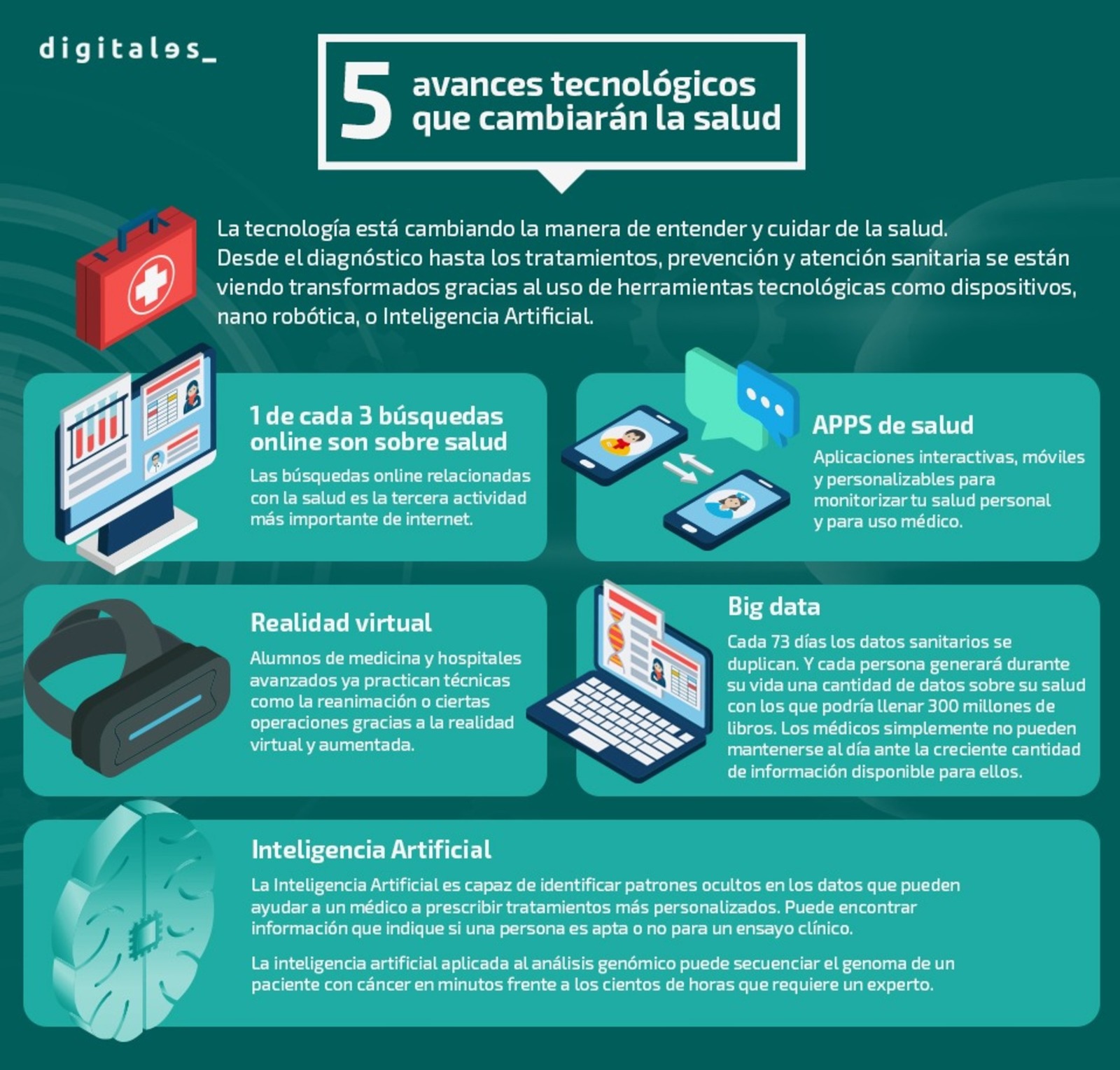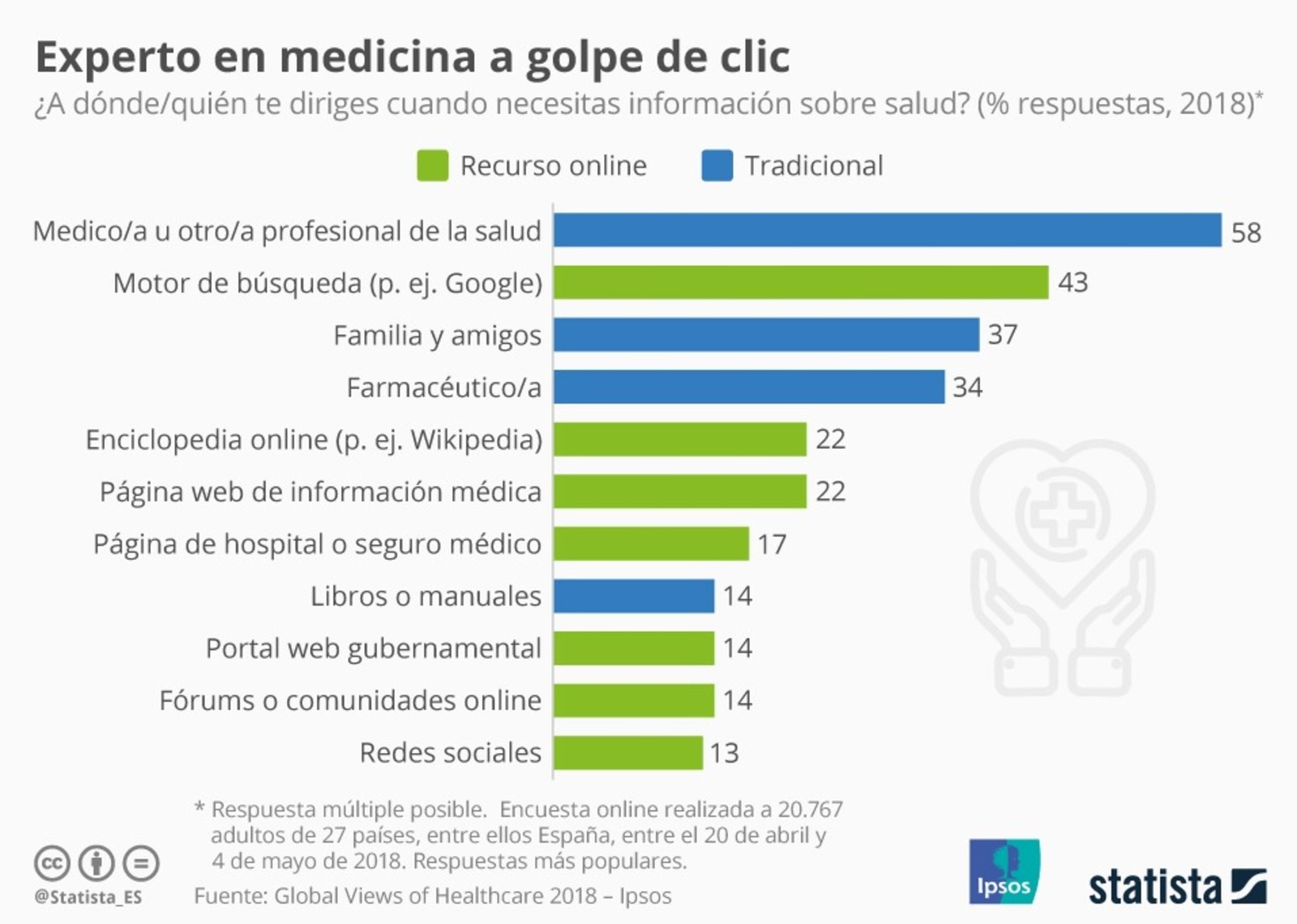10/09/2018
Every 73 days the health data doubles. And each person in his or her lifetime will generate an amount of data about his or her health that could fill 300 million books. The avalanche of information is unstoppable, and unprecedented. Physicians simply cannot keep up with the increasing amount of information available to them.
And of course, your analysis. It is a real advance to have so much data on patients, but there is a lack of time and a lack of professionals to examine so much information. And that is where artificial intelligence comes into play. For example, applied to genomic analysis, it can sequence the genome of a cancer patient in minutes as opposed to the hundreds of hours required by an expert.
Companies such as IBM, with its Watson Health AI platform, in collaboration with the Barrow Neurological Institute, has identified, through a groundbreaking study, new genes related to Amyotrophic Lateral Sclerosis (ALS). In a matter of months, Watson was able to sort through the nearly 1,500 genes within the human genome and made predictions about which ones might be associated with ALS. The data processing capacity of this artificial intelligence platform makes previously unfeasible sequences possible.
Minutes versus hours, hundreds of hours. In a scenario where the number of new cancer cases is expected to increase by approximately 70 percent over the next two decades, the need for help is imminent, especially when there is a shortage of medical oncologists worldwide and every patient, like every cancer, is unique and different.
The help that artificial intelligence can provide is by no means negligible, although it will never replace the medical professional. It is a tool to help physicians make a decision. It is the physician who decides on the treatment, based on the evidence provided by the artificial intelligence technology.
Now, what are the advantages of this powerful tool we call Artificial Intelligence? Why is it so necessary and why is it called to mark a before and after in the history of medicine? Although there are many reasons to open the doors to this technology, we summarize in 5 its main contributions
1. Artificial intelligence is able to identify hidden patterns in data that can help a physician prescribe more personalized treatments
2. You can find information that indicates whether or not a person is eligible for a clinical trial.
3. Reduces the time a physician spends reading medical literature to leave more time for treating patients.
4. In countries or places with few specialist doctors, artificial intelligence can help primary care doctors to access more specialized knowledge that allows them to coordinate more efficiently with the specialist doctor.
5. If a radiologist relies on AI technology in diagnostic imaging, he or she will be able to reach more patients in less time.
However, it is not the only advance that is changing the way we understand medicine. Technology is present in many areas of healthcare, starting with the search for information. 1 out of every 3 online queries is about diseases, ailments and treatments.
In addition, as this graph from Statista shows, there are other online resources that are relatively popular for those in need of medical advice, such as online encyclopedias (such as Wikipedia) and medical information websites, with 22% of responses in both cases.











